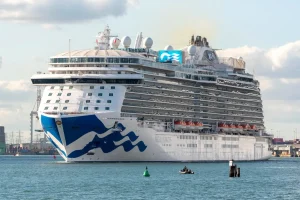Trump Promises Visa Priority for 2026 World Cup Ticket Holders
In a recent announcement that caught the attention of both soccer enthusiasts and immigration policy watchers, former President Donald Trump stated that under his administration, U.S. embassies would offer visa appointment priority to international visitors holding tickets to the 2026 FIFA World Cup. This tournament, set to be hosted jointly by the United States, Mexico, and Canada, represents the first time since 1994 that the U.S. will serve as a World Cup host nation. Trump’s promise appears aimed at addressing potential logistical challenges for the millions of international fans expected to attend the global sporting event, while also highlighting his approach to selective immigration policies.
The proposal comes amid ongoing discussions about the significant logistical undertaking that the 2026 tournament represents. With matches scheduled across sixteen cities in North America, including eleven U.S. locations, the influx of international visitors will put substantial pressure on visa processing systems. Current visa application backlogs at U.S. embassies worldwide have raised concerns about whether the diplomatic infrastructure can handle the surge of applications from soccer fans. Trump’s proposed priority system suggests creating a separate, expedited track for those who have already purchased tickets, potentially alleviating some of these concerns while ensuring the tournament’s economic benefits aren’t hampered by visa delays.
Immigration experts and tournament organizers have noted that visa accessibility will be crucial to the success of the 2026 World Cup. The tournament is expected to generate billions in revenue through tourism, hospitality, and related spending, with a significant portion coming from international visitors. Previous World Cup hosts have implemented special visa procedures or waivers to accommodate the massive influx of fans, and the U.S. faces particular scrutiny given its already complex visa system. Trump’s proposal, while lacking in specific implementation details, acknowledges the economic importance of ensuring international fans can attend without prohibitive bureaucratic barriers, though questions remain about how such a system would be balanced with security concerns.
Critics of the proposal have raised questions about fairness and practical implementation. Some argue that prioritizing visa appointments based on event ticket purchases could effectively create a two-tiered system that favors wealthier travelers who can afford World Cup tickets, which are expected to be quite expensive for premier matches. Others wonder how such a system would be verified and whether it might be susceptible to fraud. Immigration advocates have also questioned whether temporary policies for sporting events address the more fundamental issues within the U.S. visa system, which has faced criticism for lengthy processing times and inconsistent application of standards across different embassies and consulates worldwide.
The 2026 World Cup represents a unique opportunity for cultural diplomacy and international goodwill, aspects that transcend the immediate economic benefits. With 48 teams participating in an expanded tournament format, the event will bring together nations from across the globe, many of whose citizens currently face significant hurdles when applying for U.S. visas. Sports diplomacy has historically served as a way to build bridges between countries during times of political tension, and facilitating easier travel for the tournament could potentially enhance America’s global image. Trump’s focus on this particular aspect of immigration policy highlights the special status often accorded to major international sporting events in diplomatic calculations.
As preparations for the tournament continue, the practical implementation of any visa priority system remains to be seen. Tournament organizers, including FIFA and the host country committees, will need to work closely with government agencies to ensure that whatever visa processes are ultimately implemented serve both security interests and the goal of hosting an accessible, successful global event. The coming years will likely bring more detailed proposals from various stakeholders about how to manage the complex intersection of immigration policy and international sports hosting duties. What remains clear is that the 2026 World Cup represents not just a sporting challenge for the United States, but also a test of its administrative systems and its ability to welcome the world to its shores.









